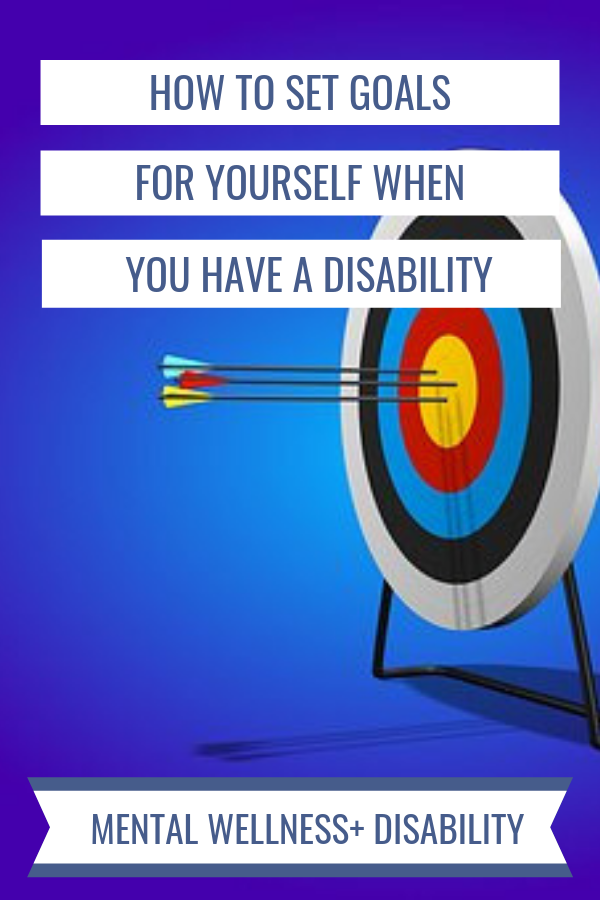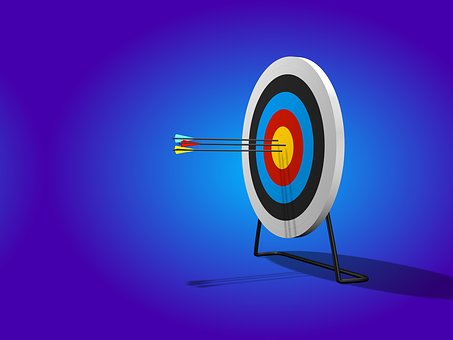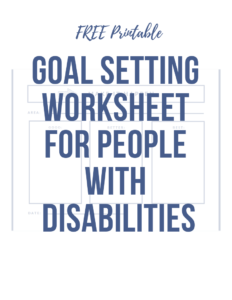The year is almost over, and for many people that means that it’s time to think about their resolutions and goals for the new year.
If you’ve had a stroke, a traumatic brain injury, or have acquired another disability, it can feel like your whole life is about goals. Physical therapy goals. Speech goals. Financial goals. Vocational rehabilitation goals.
The list of ways that you are asked to stretch yourself, and the achievements that everyone wants to see you make, can feel endless.
Of course, you have goals for yourself outside of your rehabilitation. Maybe it’s to return to work. Or to finally visit Europe. Perhaps you have Aphasia and you just want to be able to refer to your spouse using the correct pronoun.
The trouble is, if you set specific goals for yourself and then don’t achieve them, it’s easy to get down on yourself. But the truth is that you’re still learning your own strengths and weaknesses. It’s very likely that what you like and value about yourself has changed since becoming disabled.
That’s why I don’t recommend that my counseling clients who have acquired disabilities set one goal or New Year’s resolution for themselves.
I recommend they set 3.

Using the Good, Better, Best method to set goals for yourself when you have a disability
First, identify an area for improvement. It might be your health, job, or relationship with your partner.
Then, identify your good, better, and best scenarios for that area of your life.
Consider what would be good to have happen in this part of your life. For many people who have acquired a disability, ‘good’ may just mean that things stay the way that they are. Avoiding the loss of skills or abilities is absolutely a valuable goal to consider here.
Then imagine how things could be even better. In what small ways could your ‘good’ scenario be improved upon?
Lastly, consider what things would look like in this area of your life things were the best that they could possibly be.
Of course, one factor to consider here is the degree to which you accept the mental, emotional, and physical changes that have happened because of your disability.
I’ve worked with clients who have lost their vision. They will say that getting their vision fully restored is their ‘best’ healthcare outcome, even though doctors have told them its not possible. I’ve worked with other clients who have modified their best-case scenario based on their doctor’s recommendations.
Truly, either way is fine.
These are YOUR goals.
And because you’re not just setting one goal, you’ve got a whole range of possibilities to work within. This can help keep you from burning out on your efforts to achieve just the one outcome that would mean the most to you.
Click the picture below to download a free printable worksheet to use as you identify your good, better, and best goals.
Here’s an example.
Suppose you’re a veterinarian and you experience a stroke and now have Aphasia. After months of physical therapy, you’re able to walk with a cane. You’re more tired during the day, and can only stay focused on something for 2 or 3 hours before you need a rest. You want to get back to working with animals.
Here’s how your goals might look:
- Good: Volunteer with animals, such as by spending time with animals at a pet shelter.
- Better: Get paid to work with animals, maybe as a pet sitter
- Best: Return to work as a veterinarian
In this example, you can see that the ‘good’ goal is a pretty simple and attainable one. There should be no trouble achieving this.
Once the good goal is met, you can re-evaluate the better and best goals.
Perhaps you decide that you’d be OK with working as a Veterinary Technician or Assistant instead of being a Veterinarian again. Or, maybe you hold on to that goal of returning to work as a Veterinarian one day.
The beauty of this method is that you can fine-tune your goals as often as you want. You can also hold on to the dreams that you have that others may tell you are ‘impossible’. Maybe you’ll never achieve that ‘best’ goal. But, because you’re working towards the things that are ‘good’ and ‘better’, you still get the confidence and feeling of accomplishment that will come from meeting those other goals.
That way, you don’t feel like a failure because you haven’t met one goal. You get the confidence boost of meeting lots of goals while not giving up on your biggest dreams.
You can also use the ‘Good, better, best’ method to identify the effort that you will make towards a goal
For example, suppose you are recovering from a stroke. You find that it’s helping your speech and reading ability to spend time writing words down.
Here’s how your goals might look:
- Good: Write at least 10 new words in a journal each day.
- Better: Write at least 50 new words in a journal each day.
- Best: Write at least 100 new words in a journal each day.
In this example, you are not depending on the outcome of the writing to indicate if there was success. You free yourself from the pressure of whether or not your skills improved as a result of your efforts. You are just focusing on how hard you’re working. Even if your speech and writing don’t improve at the rate you hope, you still get to have pride in the tremendous work that you’re doing to get there.
After acquiring a disability, it can be hard to see yourself in a positive light. Many of my clients struggle to accept who they are if they are no longer working in their chosen profession, or no longer able to drive, or help their kids with their homework.
Using the good, better, best method to identify how hard you’ll work at your rehabilitation goals can help you gain confidence and re-build a positive self-image.
If you found this goal-setting method helpful, please use the social share buttons to spread the word with others on social media!









